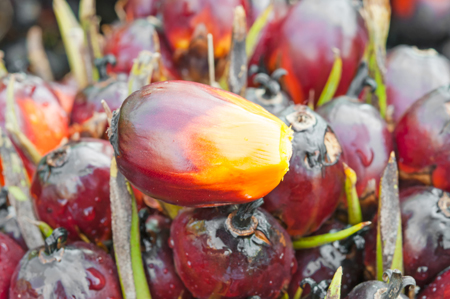 (Agrimoney) – Exports of Malaysian palm oil plummeted, pushing stocks reach record highs, but prices only edged down, as markets eyed the risk of weaker production.
(Agrimoney) – Exports of Malaysian palm oil plummeted, pushing stocks reach record highs, but prices only edged down, as markets eyed the risk of weaker production.
Stocks are up thanks to weak exports in from the world’s second ranked palm oil grower and exporter.
The Malaysian Palm Oil Board reports that reserves of the vegetable oil rose 2.6% last month to a record high of 2.91m tonnes, where investors had expected stocks to be at just 2.84m tonnes.
Falling exports
That was well above the 2.84m tonnes that investors had expected, and reflected a tumble of 12.4% to 1.50m tonnes in exports from the country, the second-ranked producer and shipper of the vegetable oil.
And December got off to an even worse start, as cargo surveyor Intertek Testing Services pegged Malaysian exports at just 280,445 tonnes over the first 10 days, down 36% month-on-month.
And cargo surveyor Societe Generale de Surveillance saw exports down 34% over the same period.
Production slows
But production was down as well, falling by 18.9% in November, to 1.65m tonnes.
And given the continued risk of dry weather in South-East Asia thanks to the El Nino effect, there appears to be continued risk to production.
El Nino, which is caused by the cyclical warming of the pacific, causes hot dry weather in Indonesia and Malaysia, which produce most of the world’s palm oil between them.
El Nino threat
“The current strong El Nino weather pattern suppressed rainfall over a wide swath of southeast Asia during the northern hemisphere summer in 2015,” the US Department of Agriculture said this month.
With rainfall in growing regions of Malaysia Indonesia “well below normal,” the USDA called for lower crop yields.
“It looks like people are looking more long term,” Ed Hugo, of VSA Capital told Agrimoney.com.
“There’s an expectation that stocks are going to start coming down,” he said, noting the potential of El Nino to exacerbate a seasonal drop in productivity.
“El Nino is still strengthening, and is expected to peak in the next few months” Mr Hugo said. “The risk is to the upside.”
Biofuel boost
Mr Hugo also noted that Indonesian exports could be hit by new biofuel legislation that would increase the proportion of its crop that is used domestically, as biodiesel.
He estimated that new measures could increase Indonesian consumption by 2-3m tonnes, absorbing excess production.
February palm oil futures in Malaysia closed down 0.3%, at 2,374 ringgits a tonne.




